The European path of the Republic of Moldova
March, 1989, Chișinău
Public demonstration requesting Romanian language to become state language of the Socialist Republic of Moldova and the adoption of the Latin script.
The dream of liberation from the Soviet occupation and the first steps towards the independence of the Republic of Moldova debuted as a national demand of the people to speak Romanian. On the 27th of August 1989, more than 750.000 people called for the Romanian language to become state language and for the Cyrillic script to be replaced by the Latin script. Two days later, on 31 August 1989, this decision was voted in the Supreme Soviet of Socialist Republic of Moldova. Ever since, the 31st of August has been celebrated in the Republic of Moldova as the Romanian Language Day.

August 27, 1991, Chişinău
Citizens of the Republic of Moldova gathered in the Square of the Grand National Assembly, day of the Declaration of Independence.

August 27, 1991, Chișinău
Members of the Parliament lead by Mircea Snegur – the President (centre) – with Valeriu Muravschi – the Prime Minister (left) – Alexandru Moșanu – the President of the Parliament – after the adoption of the Declaration of Independence of Republic of Moldova.

August 27, 1991, Chișinău
The Grand National Assembly. Voting of the Declaration of Independence of the Republic of Moldova.
The territory between the rivers Prut and Dniester had previously been annexed by the Soviet Union through the Ribbentrop – Molotov Pact. On August 27, 1991, after years of Soviet domination, the people of Republic of Moldova found the courage to defend their identity, language, culture, freedom and declared the independence of their country.

March 1992, Transnistrian region
Combatants on the Varniţa plateau, during the War for the Defence of Territorial Integrity on the Dniester
Russia had never accepted losing its influence over the territory between the Prut and the Dniester. Thus, Republic of Moldova is attacked 6 months later after the declaration of its independence. That war – started by the same aggressor who invaded Ukraine today – resulted in 1,132 deaths, including 310 dead civilians, more than 3,500 people injured and 130,000 internally displaced people. Since 1992, the Russian army has never left the territory of the Republic of Moldova. The aggression had led to the creation of a frozen conflict within the territory of the Republic of Moldova, with the Transnistrian region remaining an isolated territory with strict internal access, controlled by paramilitary institutions and therefore inaccessible to journalists, human rights defenders, national and international organisations and human rights monitoring missions. The Russian Federation tramples on basic human rights, harasses and silences all those who disagree with their dominance and regime.


1993, Tiraspol
The four members of the so-called “Ilașcu Group”, sentenced to prison in 1993 by an illegal Tiraspol court
The four were imprisoned on the grounds of campaigning for the defence of Romanian identity in the Republic of Moldova. Ilie Ilașcu, initially sentenced to death, was released in 2001 and then elected Member of the Romanian Parliament and member of the Parliamentary Assembly of the Council of Europe. Alexandru Leșco, sentenced to 12 years in prison, was released in 2004 after having served his entire illegal sentence. Andrei Ivanțoc and Tudor Popa were sentenced to 15 years in prison and released in 2007. As Romanian citizens, the four sued the Moldovan Government and the Russian Federation to the European Court of Human Rights and won the trial.

September 4, 1998, Chişinău
Visit of Jacques Chirac, French President, to the Republic of Moldova.
Jacques Chirac was the first G7 leader to visit the Republic of Moldova.
Jacques Chirac was the first G7 leader to visit the Republic of Moldova.
Jacques Chirac: ‘Moldova is Europe – culturally, historically and geographically. (…) The Republic of Moldova is destined to belong to the European family. There is already a cooperation and partnership agreement in place between the Republic of Moldova and the European Union. The Republic of Moldova is already willing to become more integrated in this important effort to build Europe, which will take a long time, but will eventually bring the whole of Europe together, while naturally respecting the identity of each of its nations and building inseparable ties between nations’.

April 25, 2007, Chişinău
Sequence from the festive opening of the Center for issuing visas for the citizens of the Republic of Moldova to travel in the European Union.
(From left) Vladimir Voronin, President of the Republic of Moldova, Ursula Plassnik, Federal Minister of European and International Affairs of Austria and Indules Emsis, President of the Parliament of Lithuania.

April 7, 2009, Chişinău
The Protest often called the ‘Twitter Revolution’, on the stairs of the Parliament of the Republic of Moldova.
The Communist Party won again the parliamentary elections of April 5, 2009, just like on February 25, 2001. Many citizens contested the result of the election and calls to protest and boycott had started on social networks. On April 7, over 30,000 protestors gathered around the Parliament and Presidency buildings. Shortly, the peaceful protest was diverted and degenerated into street violence. The Parliament building was set on fire and damaged. Following the violence, at least three people died in unclear circumstances.


January 27, 2010
Monument of Ștefan Cel Mare, Chişinău. Traian Băsescu, President of Romania, together with Mihai Ghimpu, interim President of the Republic of Moldova, commemorative ceremony.
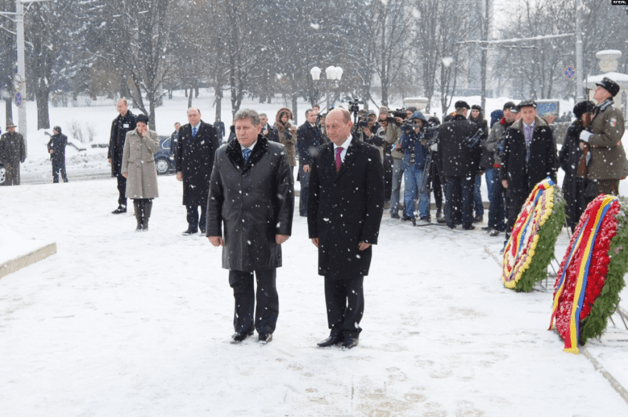
March 11, 2011, Chişinău
Joe Biden, US Vice President, with his wife, Jill Biden, and Vlad Filat, the Prime Minister of the Republic of Moldova, in the Square of the Opera and the Ballet Theatre.
Joe Biden was the first American Vice President to visit the Republic of Moldova. In Chişinău, the current US President was welcomed with great enthusiasm.
Joe Biden: ‘The Republic of Moldova is a European country and should be part of the EU, where it belongs!’

March 11, 2011, Chişinău.
Chişinău. Citizens of the Republic of Moldova gathered in the Square of the Opera and Ballet Theatre during the speech of Joe Biden.

August 28, 2012, Chişinău
Angela Merkel, Chancellor of Germany, with Nicolae Timofti, President of the Republic of Moldova.
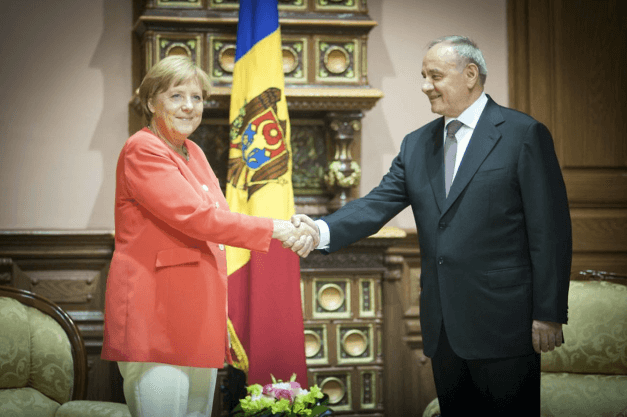
November 30, 2012, Chişinău
Sequence from the meeting of Jose Manuel Durao Barroso, President of the European Commission, with Nicolae Timofti, President of the Republic of Moldova, Dirk Schuebel, Head of EU Delegation in the Republic of Moldova and Ștefan Fule, European Commissioner for Enlargement.
The Alliance for European Integration, a pro-European coalition, was in power in the Republic of Moldova at that time. Several European leaders visited the Republic of Moldova to encourage the European perspective of the state. However, the atmosphere in Chişinău was tense, with the communist opposition led by Voronin boycotting the visit of Barroso, the President of the European Commission. In addition, it was a period when Euroscepticism was reaching the highest levels in the country, with only 35% of respondents to a survey speaking in favor of the Republic of Moldova joining the EU.

September 5, 2013, Chişinău
Nicolae Timofti the President of the Republic of Moldova, met with the Ministers of Foreign Affairs of the Benelux States – Didier Reynders (Kingdom of Belgium), Frans Timmermans (Kingdom of the Netherlands) and Jean Asselborn (Grand Duchy of Luxembourg) – during their joint visit to the Republic of Moldova.
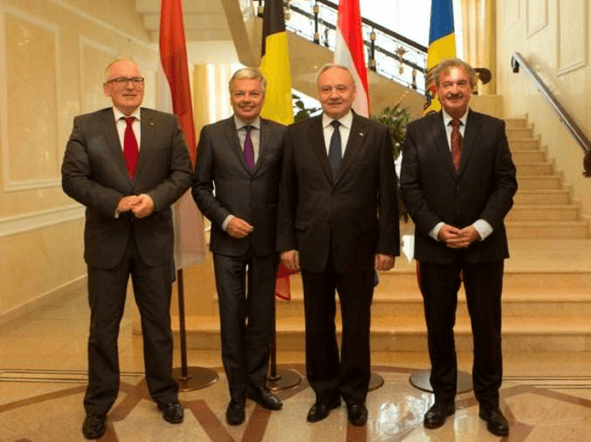
November 29, 2013, Chișinău
Traian Băsescu, President of Romania, visit to Chişinau to congratulate the Republic of Moldova on the initialing of the Association Agreement between the Republic of Moldova and the EU
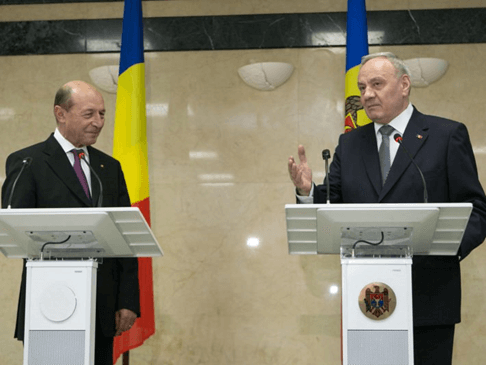
June 24, 2014, Brussels
Sequence from the signing of the Association Agreement between the Republic of Moldova and the EU. (From left to right): Petro Poroshenko, President of Ukraine; Jose Manuel Durao Barroso, President of the European Commission; Herman Van Rompuy, President of the European Council; Iurie Leancă, Prime Minister of the Republic of Moldova; Irakli Garibashvili, Prime Minister of Georgia.

August 26, 2018
Great National Assembly Square, Chişinău. Protest organized by the ”ACUM” Resistance Movement against the communist government.
The Resistance Movement ACUM was led by leaders of the PAS, PPPDA, PLDM and representatives of civil society.
Mass-media representatives joining the movement declared: ‘The dictatorship established in the Republic of Moldova totally limits the fundamental right of citizens to freedom of expression and sabotages the formation of public opinion. The media is mostly captured, and the few independent TV stations are silenced by economic levers, unfair competition, the advertising market being monopolized by the toxic Plahotniuc-Dodon cooperation.’
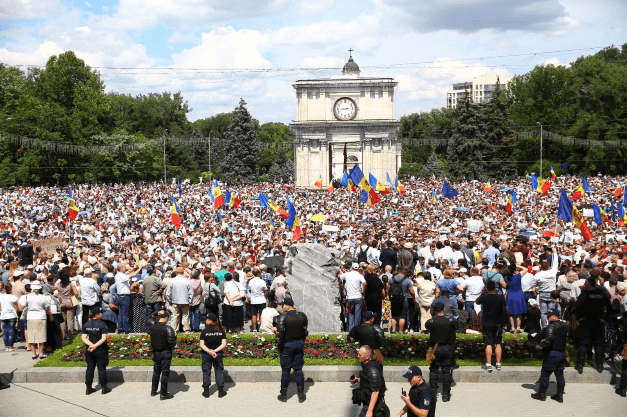
August 27, 2021
Maia Sandu, President of the Republic of Moldova, Klaus Iohannis, President of Romania, Andrzej Duda, President of Poland and Vladimir Zelenski, President of Ukraine, at the Presidency of the Republic of Moldova. Meeting dedicated to the 30 years of independence of the Republic of Moldova.
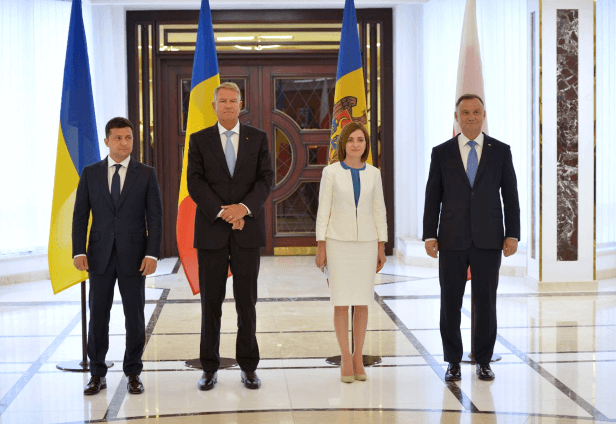
February 25, 2022,
at the border between the Republic of Moldova and Ukraine.
Russia’s war of aggression against Ukraine has particularly affected the Republic of Moldova with over 450,000 refugees entering the country and around 80,000 still on Moldovan territory. Relative to its population of just over 2.6 million, Moldova is the country with the most refugees per capita. EU support has focused on humanitarian aid (€13 million), support to people fleeing the invasion (€15 million), and border management (€15 million).
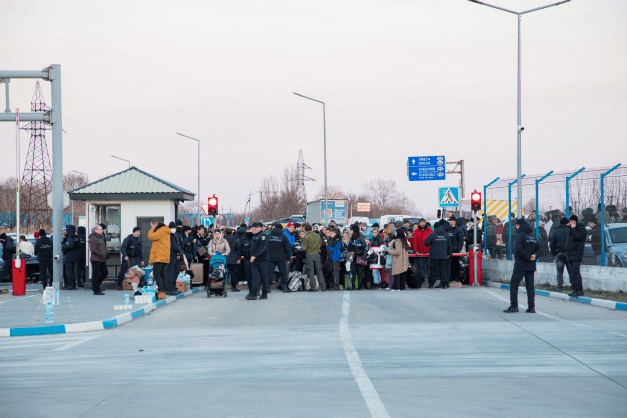

March 3, 2022
Republic of Moldova’s application for EU membership.
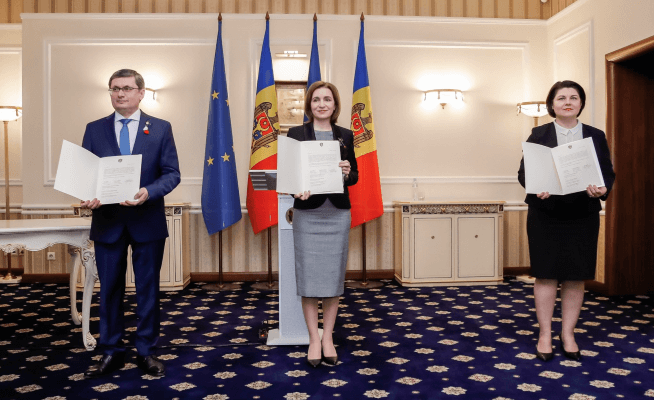

May 18, 2022, Brussels
Maia Sandu, President of the Republic of Moldova, and Roberta Metsola, President of the European Parliament.
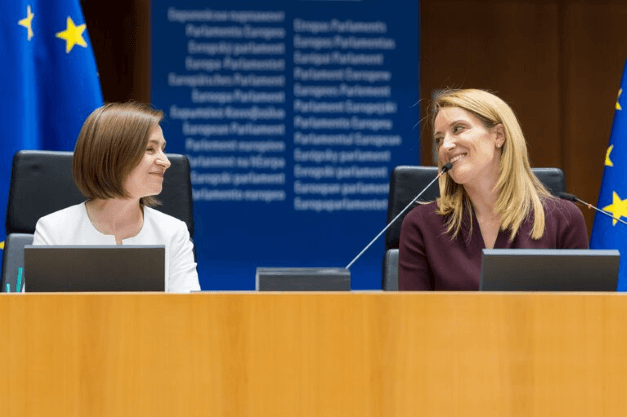
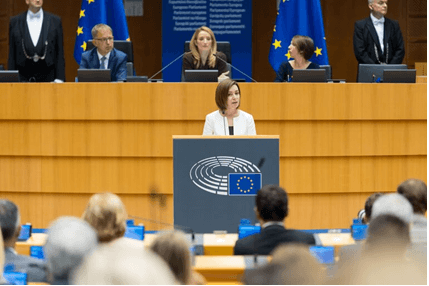
May 4, 2022, Chişinău
Charles Michel, President of the European Council, with Maia Sandu, President of Republic of Moldova, during an official visit to the Republic of Moldova
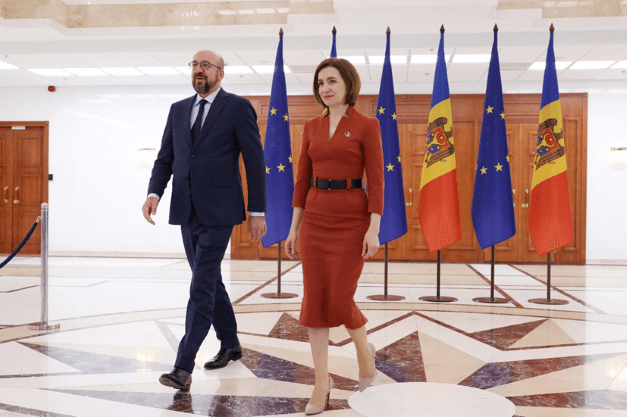
November 9-10, 2022, Chișinău
Ursula von der Leyen, President of the European Commission, announced a €250 million support package to continue to support Republic of Moldova.
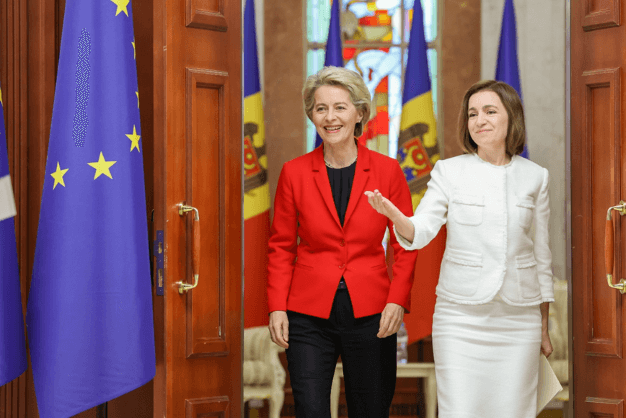
November 11, 2022, Chişinău
Roberta Metsola, President of the European Parliament, met with Maia Sandu, President of the Republic of Moldova, and addressed the extraordinary Plenary Session of the Moldovan Parliament. President Metsola: ”Moldova’s place is in Europe”.
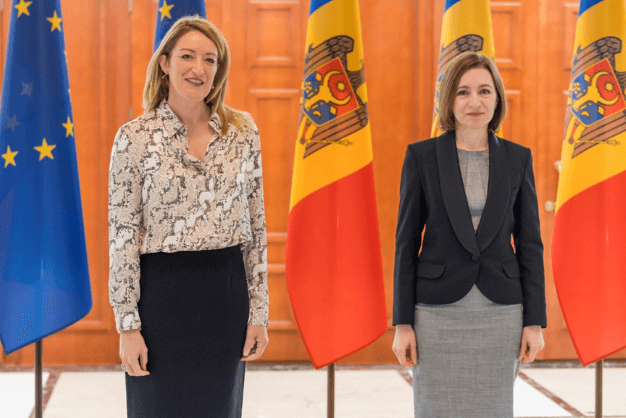
AICI TE POTI INSCRIE IN LISTA MEA DE SUSTINATORI
Vreau și eu în lista de susținători
Așa putem rămâne în contact, puteți fi informați despre eventualele evenimente următoare, despre activitatea mea politica.